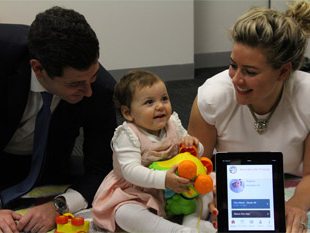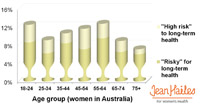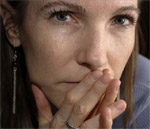Making Informed Decisions About Your Health

Making Informed Decisions About Your Health
If you have been diagnosed with a health condition, or feel concerned about your health, it's perfectly natural to want to gather as much information as possible. Knowing what information you can trust is not always obvious because medical misinformation is widespread. Magazine articles, websites, friends, TV shows and the authors of self-help books may all claim to have the answers to your healthcare questions, but can you really believe what they say?
Having access to reliable, up to date information, based on medical evidence, can help you make informed decisions such as:
What are the latest treatment options and are there any risks involved with these?
What happens if I don't get any treatment?
How common is this condition and how serious is it?
How do other people cope with this condition?
What is evidence-based practice?
If the information you are looking at has not been provided by your doctor or a qualified healthcare practitioner, caution is needed as it may not be reliable. Evidence-based practice is the term used to describe a treatment or management of a health condition which has been proven to work or be effective.
Modern healthcare systems use evidence-based practice, as this protects you from untested and potentially dangerous treatments or products. So, seeking out advice which is based on evidence, is very important. The free leaflets you pick up at your doctor's surgery or clinic should all be based on medical evidence but the same cannot be said for information found online.
Can I trust this website?
According to Healthdirect an estimated 84% of Australians used the internet to search for health information in recent years. This is clearly becoming the preferred method for researching health matters. Guaranteeing the information is evidence-based and can be trusted can be difficult. Many websites are trying to sell you something, contain errors or simply want to gather your information.
So, how can you tell if a medical website is to be trusted? Use the following questions to help guide you.
Who owns this website?
If the website is run by a commercial organisation or sponsor, with a financial interest in the information, be wary. Instead, visit a recognised government website such as the Better Health Channel, Healthdirect or a health organisation such as Jean Hailes for Women's Health.
Tip: look for '.gov", '.edu" or '.org" in the website address when looking for trusted health organisations.
Is there a HONcode certification attached to the website?
A HONcode certification is an assurance that a website provides quality, accurate, objective, medical information. There are strict rules around this certification process, which mean you can trust the information you receive.
Is the information easy to understand, accurate and up to date?
Look for contact details, the author's qualifications and a reference list which explains where the information was sourced. Online health information needs to be regularly updated and reviewed in order to maintain its accuracy and reliability.
Avoid websites which claim to make a diagnosis.
The only person qualified to make a diagnosis is a qualified health practitioner or your doctor, during a face-to-face consultation. Avoid websites which claim to make a diagnosis or ask you for money to do this.
Does this website respect my privacy?
Some websites collect your information to sell, pass to other organisations or to use for market research reasons. Be careful about giving your sensitive personal information to any organisation.
Putting it all together
Once you have a found a reliable website for your health questions, it is essential you seek the advice of a doctor or healthcare professional to discuss any worries you may have. It is easy to jump to the wrong conclusion if you are researching symptoms online and this may cause you a great deal of stress. Never use the internet to self-diagnose or self-treat a health problem, please leave this to the experts.
If you are looking for a new doctor or healthcare specialist, visit the Australian Health Practitioner Regulation Agency. Their website will help you find a qualified healthcare practitioner in your area: ahpra.gov.au.
Published with the permission of Jean Hailes for Women's Health
jeanhailes.org.au
1800 JEAN HAILES (532 642)
Have You Seen This?
MORE












